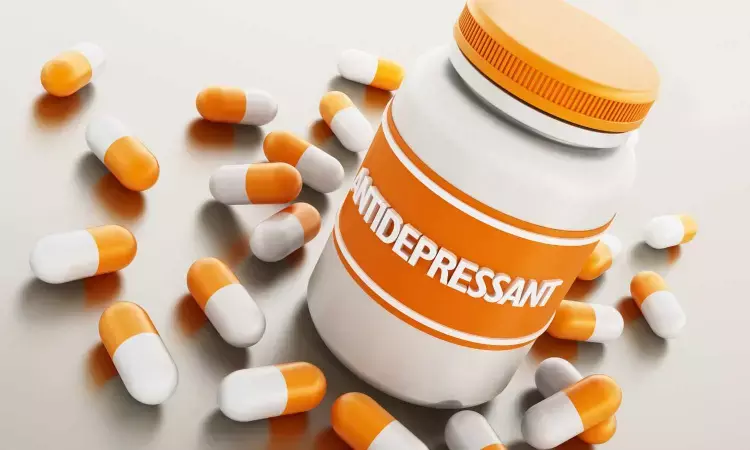- Home
- Medical news & Guidelines
- Anesthesiology
- Cardiology and CTVS
- Critical Care
- Dentistry
- Dermatology
- Diabetes and Endocrinology
- ENT
- Gastroenterology
- Medicine
- Nephrology
- Neurology
- Obstretics-Gynaecology
- Oncology
- Ophthalmology
- Orthopaedics
- Pediatrics-Neonatology
- Psychiatry
- Pulmonology
- Radiology
- Surgery
- Urology
- Laboratory Medicine
- Diet
- Nursing
- Paramedical
- Physiotherapy
- Health news
- Fact Check
- Bone Health Fact Check
- Brain Health Fact Check
- Cancer Related Fact Check
- Child Care Fact Check
- Dental and oral health fact check
- Diabetes and metabolic health fact check
- Diet and Nutrition Fact Check
- Eye and ENT Care Fact Check
- Fitness fact check
- Gut health fact check
- Heart health fact check
- Kidney health fact check
- Medical education fact check
- Men's health fact check
- Respiratory fact check
- Skin and hair care fact check
- Vaccine and Immunization fact check
- Women's health fact check
- AYUSH
- State News
- Andaman and Nicobar Islands
- Andhra Pradesh
- Arunachal Pradesh
- Assam
- Bihar
- Chandigarh
- Chattisgarh
- Dadra and Nagar Haveli
- Daman and Diu
- Delhi
- Goa
- Gujarat
- Haryana
- Himachal Pradesh
- Jammu & Kashmir
- Jharkhand
- Karnataka
- Kerala
- Ladakh
- Lakshadweep
- Madhya Pradesh
- Maharashtra
- Manipur
- Meghalaya
- Mizoram
- Nagaland
- Odisha
- Puducherry
- Punjab
- Rajasthan
- Sikkim
- Tamil Nadu
- Telangana
- Tripura
- Uttar Pradesh
- Uttrakhand
- West Bengal
- Medical Education
- Industry
Pediatric Antidepressant Use linked to minimal Short-Term Risk of Mania: JAMA

A recent study by Suvi Virtanen and colleagues delved into the contentious topic of antidepressant use in pediatric patients with unipolar depression. The study published in JAMA Psychiatry did not uncover any indications of treatment-induced mania or hypomania in children and adolescents who were diagnosed with unipolar depression.
Spanning the period from July 1, 2006, to December 31, 2019, and analyzed between May 1, 2022, and June 28, 2023, this comprehensive study examined data from nationwide inpatient and outpatient care. It included individuals aged 4 to 17 years who had been diagnosed with depression but had no prior diagnosis of mania or hypomania, bipolar disorder, psychosis, or treatment with mood stabilizers like lithium, valproate, or carbamazepine.
The study involved 43,677 patients, of whom 28,885 were girls, with a median age of 15 years. The cohort was divided into a treatment group, consisting of those who initiated antidepressant medication within 90 days of diagnosis, and a control group, comprising patients who did not initiate antidepressants within this timeframe.
The primary outcomes examined were the diagnosis of mania or hypomania or the initiation of mood stabilizer therapy. The results revealed that by the end of 12 weeks, the cumulative incidence of mania or hypomania was 0.26% in the treatment group and 0.20% in the control group, with a minimal risk difference of 0.06%. At 52 weeks, the cumulative incidence was 0.79% in the treatment group and 0.52% in the control group, with a risk difference of 0.28%.
These findings suggest that within the initial 12-week period, there is no substantial evidence supporting treatment-emergent mania or hypomania in children and adolescents prescribed antidepressants. However, a slight increase in risk emerged with longer follow-up.
Notably, certain patient characteristics, such as hospitalizations, parental bipolar disorder, and the use of antipsychotics and antiepileptics, were identified as important predictors of mania or hypomania within the first 12 weeks. Further research may be needed to fully understand the potential risks and benefits of these medications in children and adolescents with depression.
Source:
Virtanen, S., Lagerberg, T., Takami Lageborn, C., Kuja-Halkola, R., Brikell, I., Matthews, A. A., Lichtenstein, P., D’Onofrio, B. M., Landén, M., & Chang, Z. (2023). Antidepressant Use and Risk of Manic Episodes in Children and Adolescents With Unipolar Depression. In JAMA Psychiatry. American Medical Association (AMA). https://doi.org/10.1001/jamapsychiatry.2023.3555
Neuroscience Masters graduate
Jacinthlyn Sylvia, a Neuroscience Master's graduate from Chennai has worked extensively in deciphering the neurobiology of cognition and motor control in aging. She also has spread-out exposure to Neurosurgery from her Bachelor’s. She is currently involved in active Neuro-Oncology research. She is an upcoming neuroscientist with a fiery passion for writing. Her news cover at Medical Dialogues feature recent discoveries and updates from the healthcare and biomedical research fields. She can be reached at editorial@medicaldialogues.in
Dr Kamal Kant Kohli-MBBS, DTCD- a chest specialist with more than 30 years of practice and a flair for writing clinical articles, Dr Kamal Kant Kohli joined Medical Dialogues as a Chief Editor of Medical News. Besides writing articles, as an editor, he proofreads and verifies all the medical content published on Medical Dialogues including those coming from journals, studies,medical conferences,guidelines etc. Email: drkohli@medicaldialogues.in. Contact no. 011-43720751


